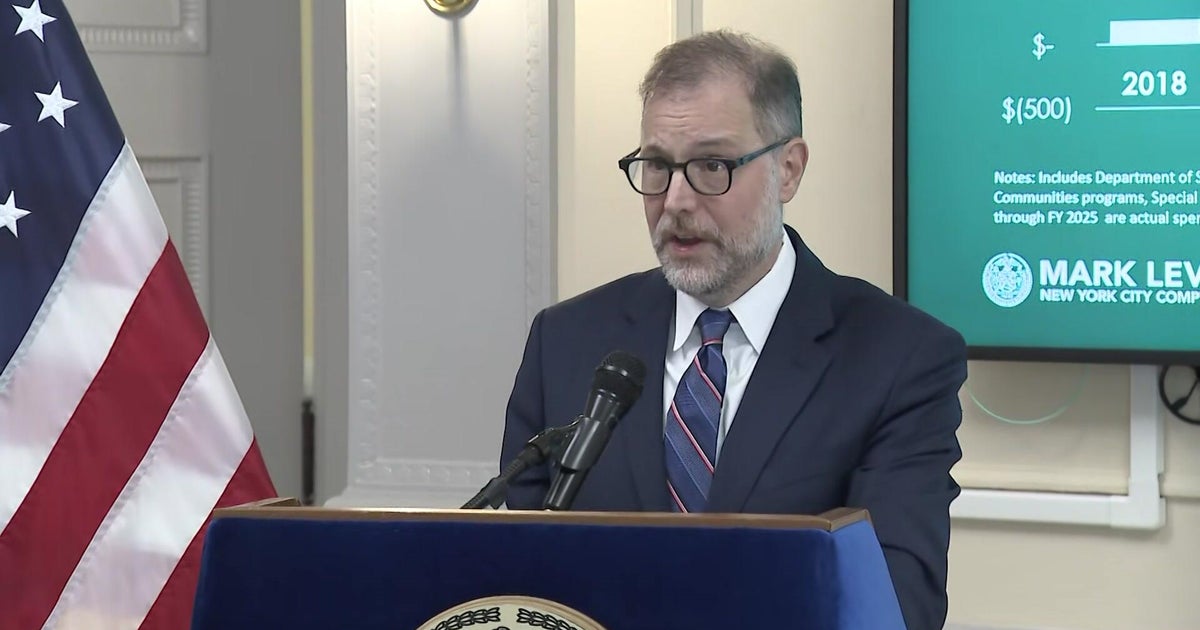NYC starts enforcing new compost rules today. Here's what to know.
New York City starts enforcing its new compost rules today. All food scraps, food-soiled paper and yard waste must be separated from the garbage and set out for composting.
The new rules took effect last fall, but they're just starting to be enforced by the Department of Sanitation, which says it issued more than 27,000 warnings during the probationary period.
"These are the same supervisors that go out, check segments and see what materials have been placed out," DSNY Acting Commissioner Javier Lojan said. "And if they get confirmation that they didn't put their organic waste out for collection, then they're subject to the fine."
Buildings with one to eight units face a $25 fine on the first offense, followed by $50 for a second and $100 for a third. Buildings with nine or more units start off at $100 for the first offense and go up to $300 for a third.
Compost bin
Owners and property managers of buildings with four or more units are required to have a designated storage area with clearly labeled compost bins.
New York Apartment Association CEO Kenny Burgos says the guidelines unfairly burden superintendents.
"To dig through tenants' trash to make sure they are sorting out organic, compostable material, [and] separating [it] for the Sanitation Department, that takes away from a super's daily duties," he said.
Bins must be 55 gallons or smaller and have a secure lid. They can be lined with paper, clear plastic or compostable bags to keep them clean.
Other tips for keeping bins clean:
- Close after every use, keep the lid shut and tightly secured
- Use paper, clear plastic or compostable bags to line the bin
- Drain liquids from scraps before placing them into the bin
- Use paper or baking soda at the bottom of the bin to absorb excess moisture
- Put food scraps into your freezer before emptying them into your building's compost bin
If you don't have a designated compost bin, you can use any bin of that size with a secure lid and order a free composting label from the Sanitation Department. You can also buy the brown bins online here.
How to compost
The Sanitation Department argues composting will help the city's fight against rats and benefit the environment.
"What they're trying to do is divert that to a composting operation that going to turn that food into something valuable that we can put back into our ecosystem," explained Andrew Hargest, found of the Compost Club.
The department picks up all food scraps, food-soiled paper and yard waste, including:
- All food scraps, including meat, bones, shells, and dairy
- Prepared and cooked foods
- Greasy uncoated paper plates and pizza boxes
- All leaf and yard waste, including flowers and Christmas trees
- Products certified or labeled compostable
Oversized yard waste can be placed into a paper lawn or leaf bag or in clear plastic bags, and twigs and branches should get bundled up and placed next to bins.
Some things not to compost include pet waste, medical waste, diapers or hygiene products.
Want to see your hard work pay off? The city turns those scraps into compost for several projects throughout the region, and you can even take some home at these pickup locations.









